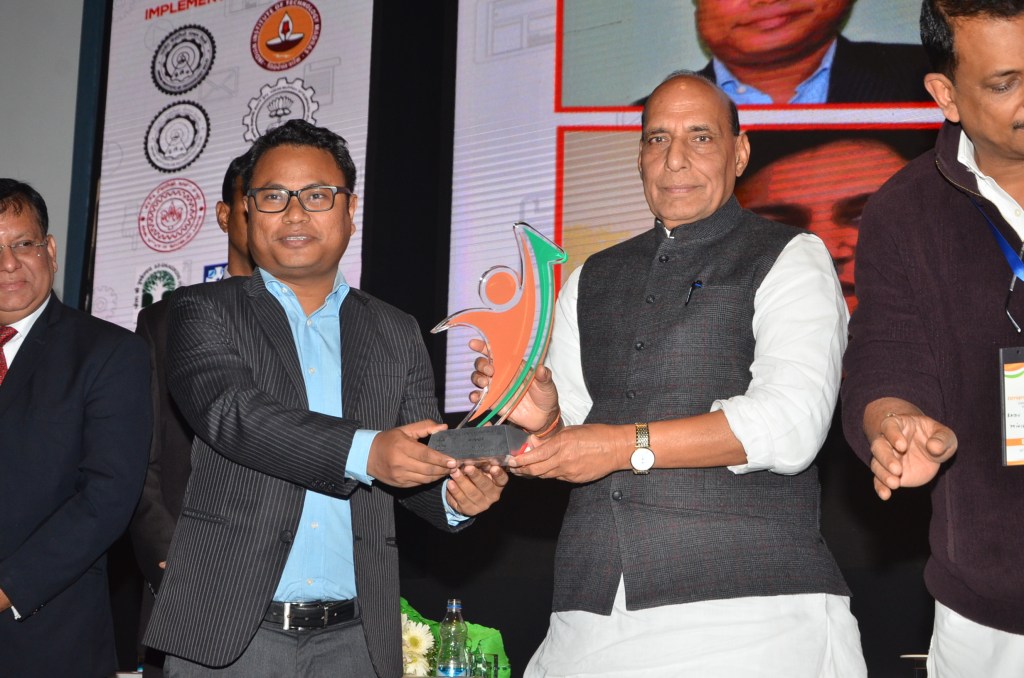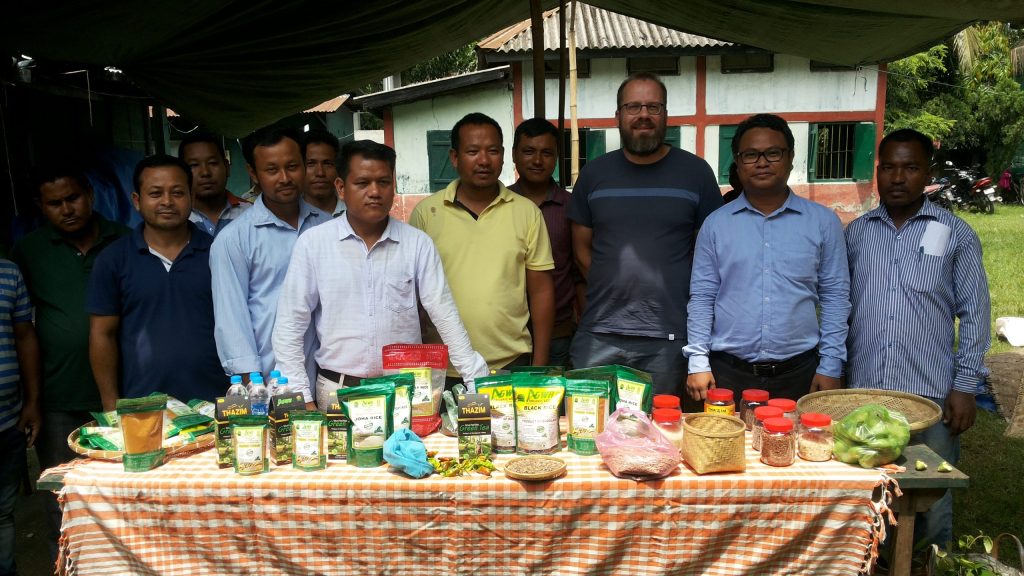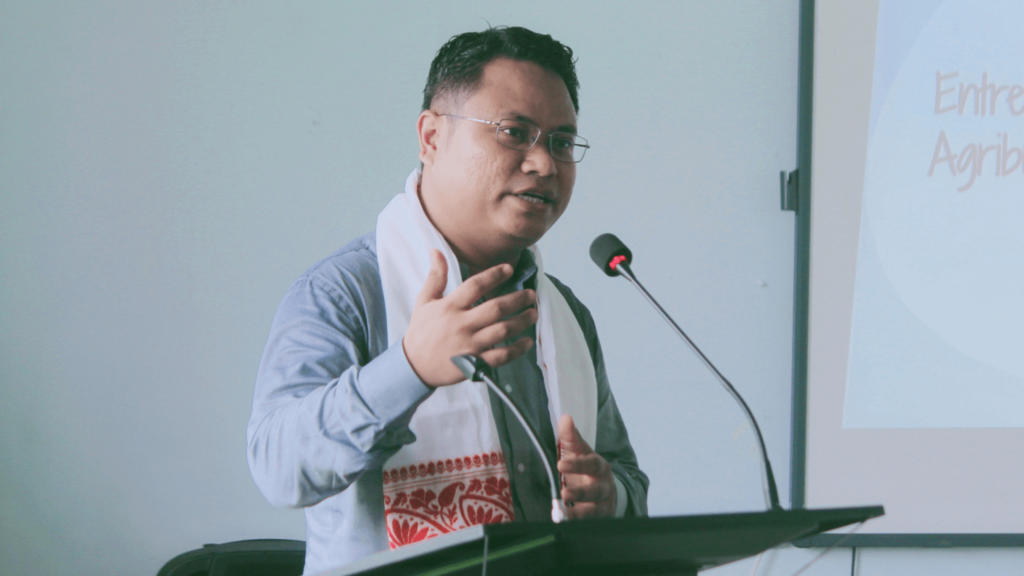Picture: Gunajit Brahma
The concept of social entrepreneurship has been played with over the years and is a true reflection of some Indian startup owners.
The conventional paradigm of running businesses in India is constantly shifting as running a business now transcends just making a profit, and has become a tool for positive socioeconomic change. The concept of social entrepreneurship has been played with over the years and is a true reflection of some Indian startup owners. As they attempt to address serious issues affecting the world around them, moving along as change-makers.
This is particularly true for entrepreneurs stringing two or more businesses together. They often begin startups in response to the societal or environmental needs that the people face. And just when one problem is getting the solution it needs, another challenge surfaces; and like ants drawn to candy, they can’t help but drawn to social problems and finding ways to solve them. A perfect example of a multifaceted entrepreneur who is dedicated to solving problems plaguing the people with his several ventures is Gunajit Brahma, IIM-Indore alumni.
Gunajit is an ardent entrepreneur, and currently runs multiple companies like Bati Energy, Jeevanksh, Farmeasy Technologies, and several others. For Gunajit, being an entrepreneur wasn’t the last resort. It is something he had always aspired to become ever since his teenage years. “My entrepreneurial journey officially began after I joined IIM Indore in July 2010, and in September that same year, I started my first venture, Renewable Bazaar. It was a social network for renewable energy professionals.
“During the initial days, I was ridiculed by a few of my batch-mates and seniors at the campus for being a Student Startup, but a few months later, in January 2011, I was selected as one of the Top 30 Student Startups across India by Wadhwani Foundation’s NEN (National Entrepreneurship Network). That recognition made me realise my true potential, and overcome the fear of what others were thinking or saying about me,” he says.

Beginning his first company Jeevanksh, Gunajit went through several profound challenges that are common with startups. For instance, funding was a huge problem for the young entrepreneur. With financial support from friends and a scholarship, he was able to raise funds for his campus startup. Gaining proficiency in his field was another challenge. During the first three years of his company, he also struggled with establishing an efficient system to run the company. It took him a few years to finally find something that is efficient and sustainable. They have completed incubation from major incubators of the country like IARI-Pusa, New Delhi; NeatEHub, AAU, Jorhat; as well as International accelerators like The Land Accelerator, managed by World Resources Institute (WRI), DC, USA, supported by IKEA Foundation, Netherlands.
“Currently, we provide forward market linkages to organic farmers of Northeast India and promote and market their farm produce in India, Southeast Asia, the Middle East, and Europe. Our organic product range includes spices and grains. A few of our products include GI (geographical indication) products from NER like Assam Joha Rice, Manipuri Black Rice, Naga King Chilli, Sikkim Large Cardamom, Lakadong Turmeric, and other exotic products like Bao Red Rice, Sticky Bora Rice, Magic Kumol/Soft Rice, Bhut Jolokia, Sichuan Pepper, Ginger, Black Pepper, and so on,” he notes.
In a world that is steadily switching to organic products, Gunajit finds himself in a strategic position as one of the champions of organic foods. “The demand for organic and healthy food is ever increasing. Ever since the beginning of the Covid pandemic, the market demand has grown by over 40% and we believe that it will have an upper growth trend for another 3-4 years,” he says.
Between 2012 and 2016 when he started as an e-commerce platform for organic goods, he had to invest a lot of money in online advertisements. Although their conversion ratio was high at about 75% (meaning for every rupee spent on advertisement, they were earning 75 paise), it was not a sustainable model, and they failed to raise external investment in good time. “But instead of shutting down, we pivoted our business model from B2C e-commerce to B2B market linkage business for organic food in 2015. Suddenly we had our floodgate (metaphorically) opened for buyers of organic food”.
For Bati Energy, Gunajit is focused on renewable energy and the many ways it can be beneficial to society. Several projects have been completed ever since the company began. “We started the company by doing a solar water pumping project in the holy city of Bodh Gaya, Bihar, and I am glad to inform you that it is now an international company with an office in Europe, wherein, my co-founder, Bhavesh Bati, is working with global clients based out of India, Europe, South America and Africa.
“We have commissioned projects as small as 15KW and as big as 25MW. There are few projects in the pipeline in Europe, Africa and the Middle East, which will be over 100MW,” he adds.
His most recent company, Farmeasy Technologies, currently under incubation at Assam Startup, Guwahati, and virtually incubated with NASSCOM’s 10,000 Startups & PwC’s FinD in Mumbai, is another innovation aimed at easing the burden of small scale farmers by helping them acquire benefits such as loans, grants and insurance. Co-founded with Alok Ekka, they have partnered with several financial institutions to make this possible. Gunajit also ensures to collect extensive data through some of his partner institutions. By this action, they can select farmers who are trustworthy and credit-worthy.
The team has created a proprietary algorithm, which the founders will be patenting soon, to determine the creditworthiness of farmers by evaluating over 80 individual parameters, 600 data-sets and over 10 million data from the government’s database. With their creditworthiness and risk assessment scorecard; banks, MFIs, NBFCs and insurance companies can provide better financial services to farmers and agribusinesses by reducing the risk of NPAs (non-performing assets) and improved repayment of loans.

“We are seeing a lot of excitement for our solution from the farming community as well as potential investors across India. We also showcased our product in the recently concluded Virtual Digital World 2020, organised by United Nation’s ITU (International Telecommunication Union). We were the only company from across Asia-Pacific to be in the Finals of this prestigious Global competition, under the Digital Finance category. For our solution, we received a lot of appreciation from the Jury members.”
Sharing about how his ventures go about measuring their impact, Gunajit says, “We measure our impact by estimating the total number of farmers and farmer families associated with us, and are accountable for supplying their organic products to us. So far, we have been associated with over 10,000 farmer families in the entire Northeast of which over 2500 are direct members of farmer collectives, like Farmer Producer Organizations and Women Self-Help Groups, and the rest are landless farms or workers who participate in the activities of farming. We measure the increase of income of our associated farmers, which has been over 5 times till now. We were able to achieve it by not only providing a better market linkage for these farmers but by also reducing their cost of production, through the various training programmes that we undertake with them.”
With future plans that include expanding his organic business beyond India into the shores of Europe, the establishment of his latest fintech venture, and expansion of his solar company to include projects in Africa, South America and Europe, Gunajit certainly is committed to doing his bit to see the change in the world that we all desire.
Apart from running his startups, Gunajit also teaches entrepreneurship to students of IIM Indore as a visiting faculty, and contribute to IIE, Guwahati, and EEI-NER and AAU, Jorhat as a guest faculty on various entrepreneurial as well as farmer market linkage topics.
Article Credit: eastmojo
